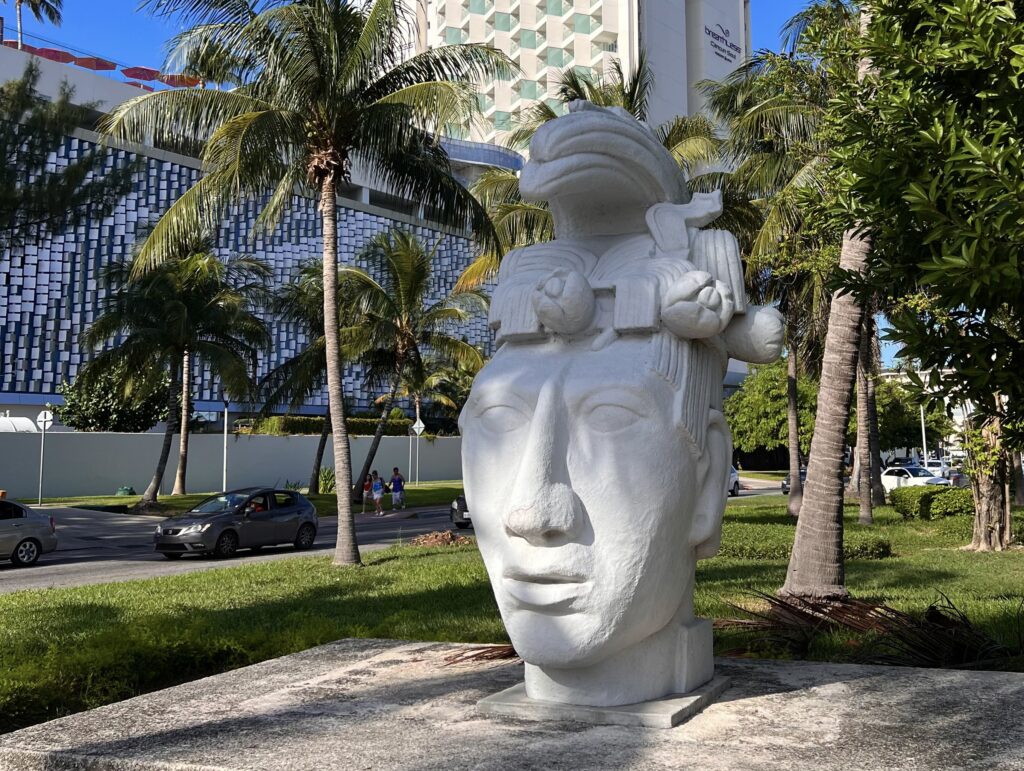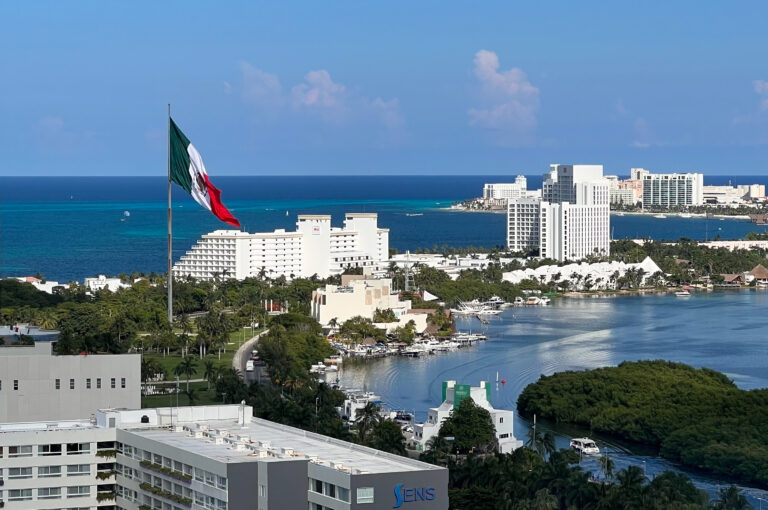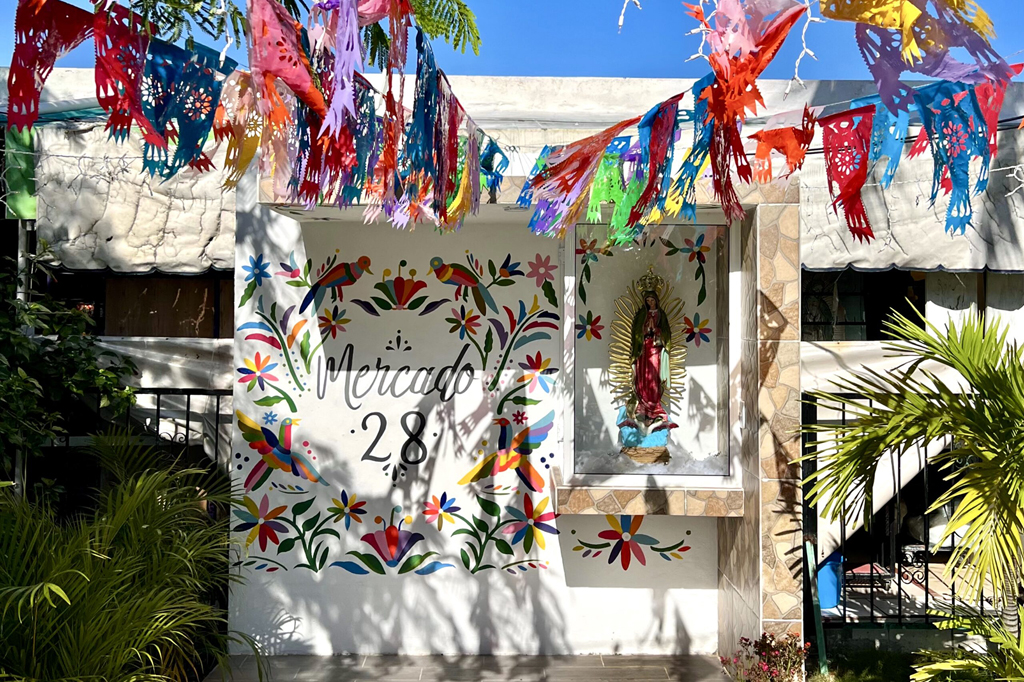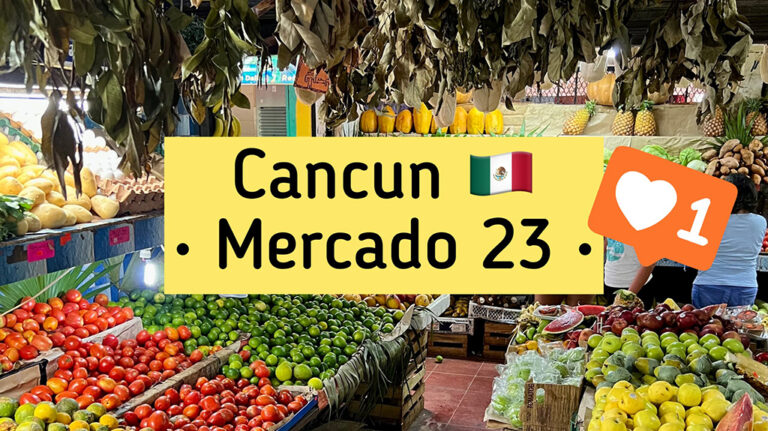Cancun, with its stunning beaches, crystal-clear waters, and rich Mayan history, is a bucket list destination for many. But like any tourist hotspot, it comes with its own set of challenges. Naturally, staying safe in Cancun is the primary concern. Unfortunately, some people take advantage of visitors who aren’t prepared for the local scams. While Cancun is definitely worth the trip, it’s important to stay sharp to avoid falling into common tourist traps. This guide will help you recognize the tricks scammers use and give you tips to protect yourself. With a little awareness, you can enjoy everything Cancun and Riviera Maya have to offer without any unpleasant surprises—just great memories and a fantastic vacation.
Is Cancun Safe?
When planning a vacation abroad, safety is often a top concern. If you’re considering a trip to Cancun or the Riviera Maya in Mexico, you may wonder how safe these areas are. It’s important to clarify what “safe” means—whether it refers to physical safety or something else. Fortunately, reports of physical violence against tourists in Quintana Roo are rare, though not nonexistent. However, the real threat to your peace of mind often comes from fraudulent activities. As popular tourist destinations, Cancun and the Riviera Maya are known for scams targeting visitors, and that’s what we’ll cover in this article.
Old Tricks in a New Setting
Many of the scams you’ll encounter in Cancun are variations of those found in tourist destinations worldwide. These include familiar traps like credit card cloning, ATM “helpers,” and inflated exchange rates. While these scams may seem rudimentary, their effectiveness lies in catching tourists off guard in an unfamiliar environment. Additionally, Cancun also has its own unique set of scams, tailored to exploit the specific vulnerabilities of travelers in this tropical paradise. Let’s explore some of the most common scams you might encounter and how to avoid them.

What are the most common scams in Cancun?
Everything starts with your arrival in Cancun. So, what can you expect?
The moment you step out of Cancun airport, you’ll encounter many individuals trying to catch your attention. This can be overwhelming, and that’s exactly the effect they scammers are aiming for – to take advantage of unsuspecting newcomers.
Common Airport Scams in Cancun:
- Fake Airport Employees: These individuals dress like airport staff, have vests and badges. They usually try to sell you something overpriced (e.g. a taxi, tour) or offer unsolicited “help.” They’re just scammers in disguise.
- Taxi Drivers Claiming to Know You: They may approach you, acting as if they’re your pre-arranged transportation. Always have the contact information of your legitimate transfer service ready and be in communication with them.
- Taxi overcharging: While taxis are convenient, some drivers might try to overcharge tourists, especially those unfamiliar with Cancun. Always confirm the fare upfront. If possible, research typical fares for your route beforehand to avoid being taken advantage of.
To avoid taxi overcharging, research typical prices for your route beforehand. The most effective way to bypass these potential scams is to arrange your airport transportation in advance. This will ensure a smooth and worry-free start to your Cancun adventure, allowing you to focus on enjoying all that this beautiful destination has to offer, and ensure that your experience in Cancun is safe.

Tours, Excursions and Transportation
Cancun offers a plethora of exciting adventures. However, when booking tours and excursions, exercise caution to ensure Cancun is safe for you. Unlicensed tour operators and opportunistic taxi drivers might tempt you with attractive offers, but their services may be unsafe or of poor quality.
To ensure a safe and enjoyable experience, book tours through reputable agencies and use authorized taxis. Your hotel concierge can offer valuable recommendations or assist with bookings. Remember, prioritizing safety and quality over a slightly lower price is always a wise choice.
Beware the Glittering Reviews
Online reviews are essential in shaping choices, and Cancun’s hotels are no exception. However, the pursuit of positive reviews has led some establishments to engage in unethical practices, such as pressuring guests to leave glowing feedback or even fabricating reviews. These false reviews are usually easy to spot: they often highlight the names of specific staff members, like a waiter or guide, who “went above and beyond.” Of course, not all such reviews are automatically fake. All we are trying to say is that you need to take them with a grain of salt. Statistically speaking, people are more likely to leave a negative rather than a positive review.
To stay safe in Cancun and ensure you’re getting an accurate picture, diversify your research: consult multiple platforms, read reviews of all types, and look for patterns or inconsistencies. Also, contact travel forums for firsthand insights.
The Timeshare Trap
The allure of luxurious vacations at seemingly unbeatable deals can be tempting, but be very wary. Timeshare presentations often come with high-pressure sales tactics and a colossal waste of your vacation time.
If you’re not interested, stay firm and decline politely. After all, your vacation time is precious.
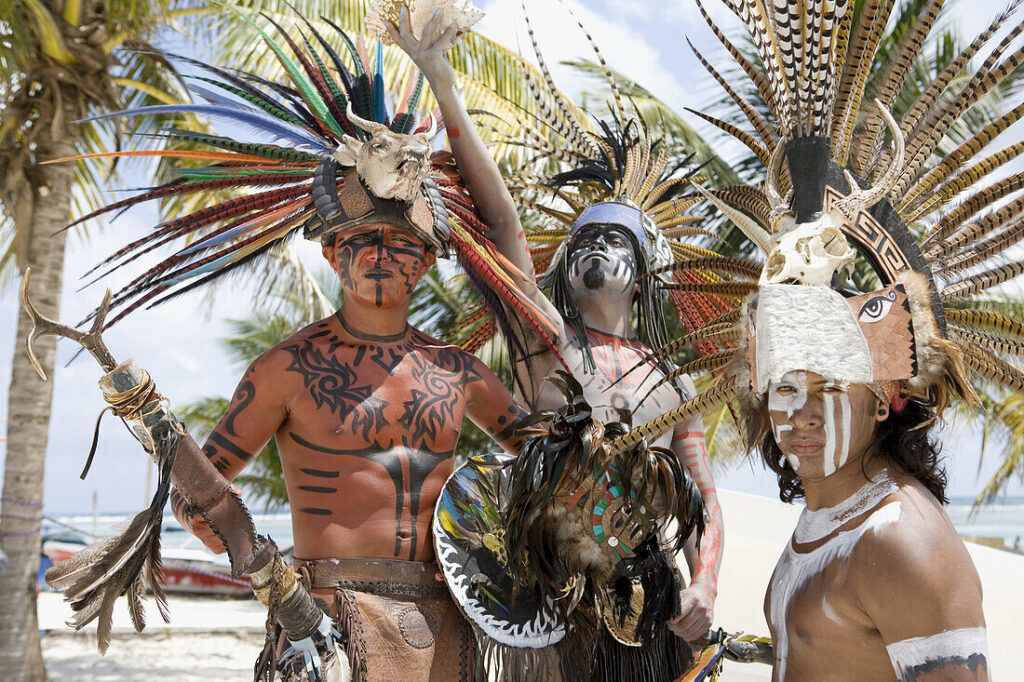
“Free” Photos with a Price
Beachside photos with exotic animals or colorful characters can seem like fun, but these “free” photos often come with hidden charges or pressured souvenir purchases. To avoid falling into this trap, clarify costs upfront, and be ready to walk away from pushy vendors.
Cancun is safe for tourists, but it’s always wise to remain cautious. Remember, true memories are made through experiences, not forced photo opportunities.
The “Overly Friendly” Local
While Cancun locals are friendly, some scammers take advantage of this. If a local appears too friendly, especially asking for money or favors, these could be scammers preying on tourists’ vulnerabilities.
Maintain healthy boundaries and avoid sharing personal information or financial details with people you’ve just met. Trust your instincts and remove yourself from any situation that feels uncomfortable or suspicious.
Tourists can be approached by seemingly local people, greeting them in a very friendly manner and claiming to remember them from a hotel or a tour or a bar.
We ourselves have experienced such an encounter on Isla Mujeres, when a friendly guy approached us, greeting us and saying: “Hey, I remember you from the hotel, I was your server. Do you remember me?” The thing is we don’t live in a hotel and that was the first time we saw the guy.
This is a common scam to lure tourists into a shop that is ‘owned’ by the person’s relatives or friends. They usually don’t try to rob or harm you, just trying to get you to the shop and buy something there, which is most likely overpriced.
Keep your guard up to stay safe and avoid Cancun scams like this.
Fake Jewelry Hustles
Cancun’s markets are filled with vibrant souvenirs, but be wary of vendors selling “genuine” silver or gold jewelry at suspiciously low prices. These items are often cheap metals or alloys and are not worth the asking price.
Stick to reputable stores if you’re seeking authentic jewelry. Remember, if a deal seems too good to be true, it probably is.
Creating distractions to steal from you
The Lost Wallet Ploy is another classic scam, where a “tourist” is approaching you, claiming they’ve lost their wallet and need help. They may ask for help to find a police station or even request a small loan to tide them over. This distraction could allow an accomplice to pick your pocket. It’s best to decline politely and offer to contact the authorities instead.
Lastly, beware of The Spill and Steal, a scam where someone “accidentally” spills something on you, creating a diversion for an accomplice to steal your belongings. Always be mindful of your personal items and monitor individuals who seem overly clumsy or apologetic.
While these scams exist, Cancun remains a safe destination for travelers who stay aware of their surroundings. Understanding potential Cancun scams can keep your trip stress-free, so you can enjoy the beauty of this popular vacation spot.
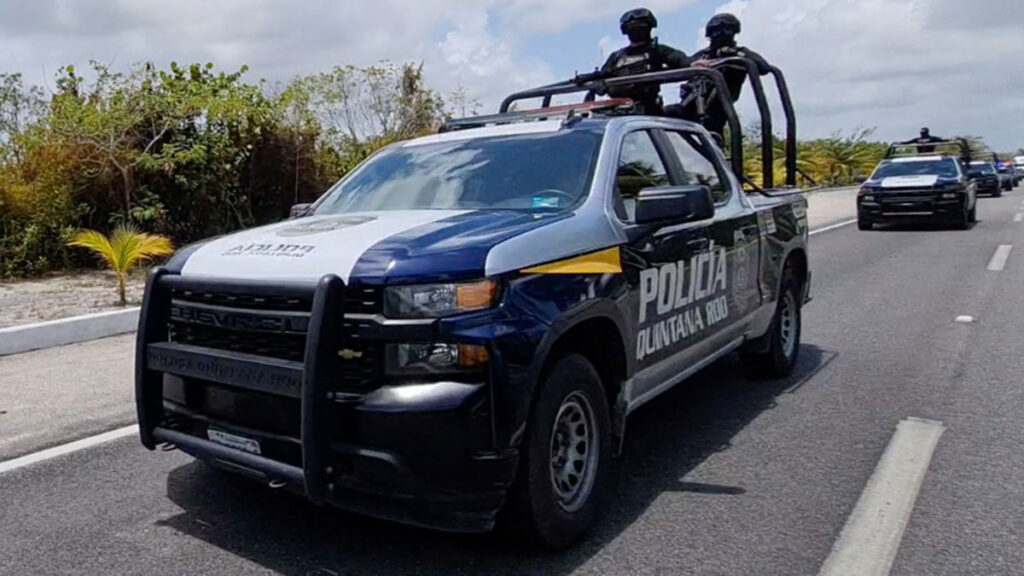
Police Scams. Staying Safe While Interacting With Police
Police corruption targeting tourists, especially in popular destinations like Cancun, Tulum, and Playa del Carmen, is unfortunately a reality. For those wondering, is Cancun safe, it’s important to recognize these situations in order to stay informed and cautious. This corruption can manifest in many ways, typically involving the targeting of intoxicated tourists in less crowded areas to avoid witnesses. Police may subject them to a full body search under the pretense of looking for drugs. The best way to avoid this is simple: DO NOT BUY DRUGS! Another common situation involves tourists who rent cars, as traffic police frequently target them.
To help you stay safe in Cancun and Riviera Maya and avoid these scams, consider the following tips:
- Don’t Give in to Bribes: If a police officer tries to demand money from you, don’t hand over any cash, even if they threaten to take you to the station. Police officers often don’t need a reason for stopping you—they can invent one. Many tourists have found that calmly agreeing to go to the station to speak to their superior (captain) can make officers back down 95% of the time. The mere mention of reporting their behavior to a higher authority can be enough to stop the scam.
- Rental Cars and False Accusations: Tourists driving rental cars are frequently stopped with fabricated claims of traffic violations, such as speeding or not wearing seatbelts. (*Do remember, however, that in Mexico using seatbelts is legally required for all passengers in the vehicle, even in the back seats.) Some tourists report that police will take their driver’s license and refuse to return it unless you bribe them, sometimes as high as US $200 or even more. These are intimidation tactics, not legitimate law enforcement actions.
- Stand Your Ground: One effective response to these scams is to insist on paying any fines directly at the police station, not on the spot. Police often let tourists go after this because they are simply looking to intimidate scared visitors into paying bribes. Fluency in Spanish seems to be an advantage in these situations, as it can make tourists less of an easy target.
- Be Cautious with Taxis and Car Rentals: Renting a car increases your chances of police pulling you over, so consider using shuttles or public transportation. However, taxi drivers can be scammers as well, so maintain vigilance always. While police may use intimidating tactics, they rarely escalate beyond that. Their goal is to exploit tourists who are unfamiliar with the area and the local laws. Standing firm can often make them move on to easier targets.
Being safe in Cancun requires being aware of these potential issues and staying firm in your dealings with law enforcement. While Cancun is generally a safe destination, understanding these Cancun scams will help you navigate your trip more confidently.
An Ace up Your Sleeve for Minor Traffic Violation
In Quintana Roo, the “Courtesy Violation Ticket” refers to a provision in Article 241 of the state’s Traffic Regulations, which outlines special support for tourists. This article is part of Chapter XVII, titled *Support for Tourists*, of the traffic laws. It essentially states that if a tourist is stopped by the traffic police but is certain they haven’t committed any serious violations, they can invoke this provision.
Carrying a printed copy of Article 241 may help in such situations, as it shows that you are aware of your rights under local traffic law. This may act as a deterrent against corrupt practices, like being falsely fined or harassed for bribes. The article is designed to provide tourists with a level of protection and fairness, as well as to avoid undue stress while visiting.
This could be particularly useful in scenarios where police officers attempt to exploit tourists’ unfamiliarity with local laws. By requesting that any fines or penalties be issued in accordance with Article 241, you can challenge any unjust demands and potentially de-escalate the situation.
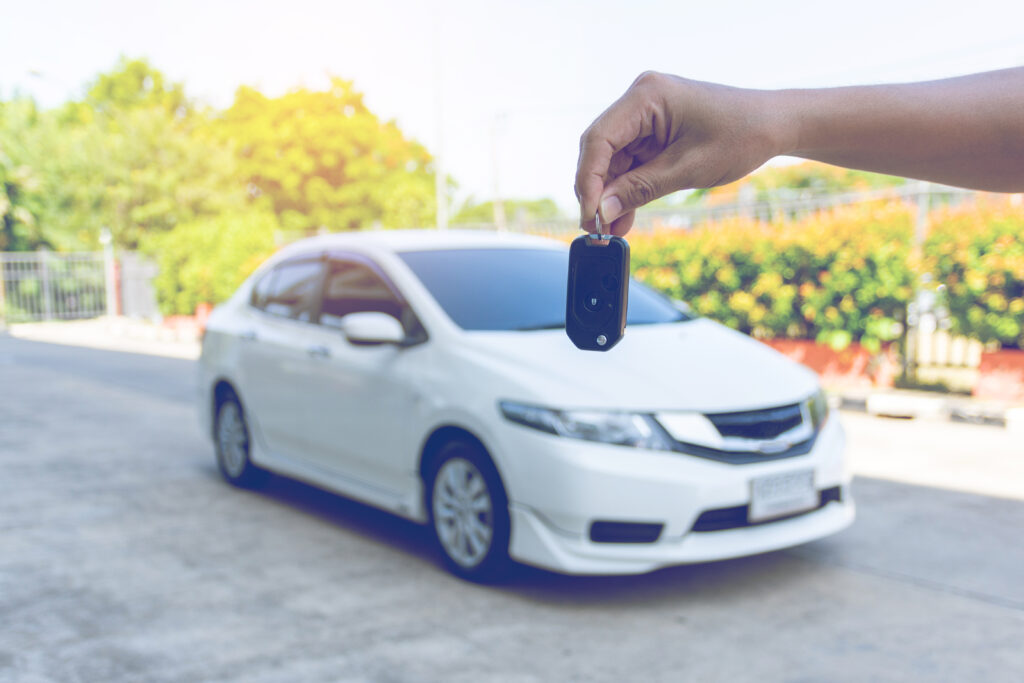
Car Rental Scam
There are several stages in the car rental process where things can go wrong, especially if you’re not careful. For those wondering if Cancun is safe for renting cars, it’s important to stay vigilant as car rental scams are not uncommon. Typically, Cancun scams and similar ones in the Riviera Maya follow a pattern, but they can still catch even the most experienced traveler off guard.
We personally experienced an attempted scam when we visited Cozumel and tried to rent a car.
Car rental prices in Cozumel tend to be fairly consistent across providers. We spotted a business owner on the street and inquired about availability. After finding a car we liked, we decided to proceed with the rental. However, strange things began happening during the paperwork process. The price, initially quoted on the street, increased three times during the process. While we felt uneasy, we continued, hoping it would resolve. The final red flag came when they asked us to write our full credit card details, including the expiration date and CVV number, on a piece of paper. While providing card details isn’t always unusual, if someone asks you to include the CVV, this is highly suspicious. With this information, they could easily make unauthorized charges. While some banks offer security features like 3D Secure, they’re not always foolproof. At this point, we trusted our instincts, got up, and left.
Other Cancun scams related to car rentals often involve deposit issues—many travelers report that companies refuse to return their deposit, especially if they paid in cash, making it harder to prove the payment. That’s why it’s always best to use a credit card for such transactions. In case of any disputes, you can report the transaction to your bank.
A common scam involves charging renters for pre-existing dents, scratches, or other damage when they return the car. To avoid falling victim to this, make sure to document the car thoroughly with photos and videos before driving off. One of the worst cases we’ve heard of, especially in Cozumel, involves scammers following your rental car and staging accidents, such as a motorcyclist suddenly appearing out of nowhere. These scammers may demand large sums for supposed damages or insurance, particularly if you didn’t purchase the premium coverage.
The bottom line is, if something about the process feels off, trust your instincts and walk away. Always try to rent from trusted companies, not from someone you met on the street. Even when choosing well-known companies, check reviews ahead of time because, in Mexico, anything can happen. Staying alert and being cautious will help you stay safe in Cancun and avoid falling into these Cancun scams.

Restaurants and Bars
Cancun and Riviera Maya cater to diverse tourist needs, so naturally, there are many restaurants. Considering the prevalence of scams in the area, it wouldn’t be surprising if some unscrupulous establishments try to extract extra money from tourists. One common tactic is including the tip in the bill without your consent. Pay close attention to the total and don’t hesitate to ask for an itemized breakdown. Including a tip in the total bill is illegal, and you can report it to PROFECO (Mexico’s consumer protection agency).
Check our comprehensive article on tipping in Mexico.
Credit Card Scams
Credit card scams can happen anywhere cards are accepted, including restaurants, bars, gas stations, and car rental offices. A typical scenario is that the staff will take your card, claiming their mobile card reader is broken or out of battery, and then skim your card while you wait. Skimming involves using a device to steal your card data without your knowledge. It often occurs at ATMs or compromised point-of-sale (POS) terminals.
Our tips to avoid credit card scams:
- Never let your card out of your sight.
- Do not allow staff to take your card and walk away with it. Either request to bring the portable card reader to your table, or go with the staff to the cashier to pay.
- If possible, enable daily spending limits and transaction notifications on your card.
- Regularly check your account activity while on vacation.
- If you see unfamiliar charges, immediately block your card and contact your bank.
- For maximum safety, reissue your card when you return home.
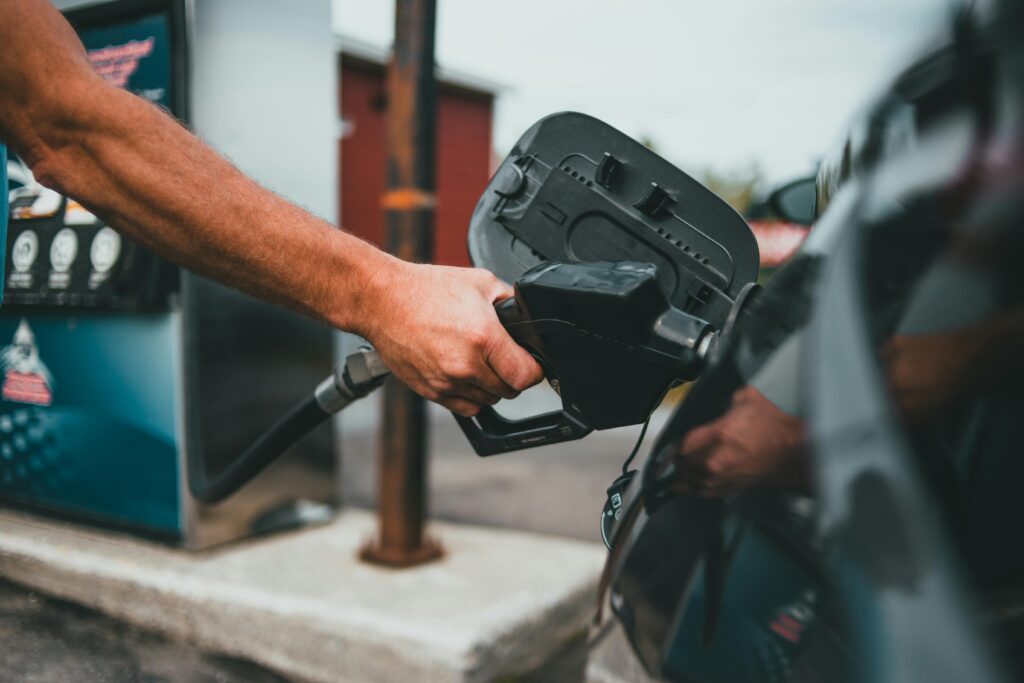
Gas Station Scams
There are two most common scams that you can potentially encounter at a gas station: Cash Switching Scam and Pump Meter Scam.
The Cash Switching Scam is a very common scam, especially at gas stations near the airport. You hand them cash, and they quickly switch bills to make it seem like you underpaid.
The Pump Meter Scam works in such a way that you can be double or triple-charged at gas stations, particularly those on the way to the airport. Here’s how it works: when you arrive at the pump, the attendant doesn’t reset the meter from the previous customer. This way, you end up paying for their gas too, and they pocket the difference.
Tips to avoid gas station scams:
Watch the attendant closely as they fill your tank and ensure the meter starts at zero. If you suspect a scam, report it to the gas station manager or the police.
If possible, record the whole transaction on your phone, especially when you hand them cash.
Try to pay with a credit card whenever possible, as it provides a record of the transaction. Do not give your card to the staff, watch it closely.
If you must pay with cash, use smaller bills to minimize the potential for confusion, or better yet, have them fill up your tank for a given amount of money. This doesn’t absolve you from ensuring that they zeroed out the pump meter.

Beyond the List: Stay Safe in Cancun and Use Common Sense
Every now and then, we see posts on Reddit and other social media, where someone mentions: “I/my friend peed on a bush, building, on the beach, and got arrested” or “We didn’t commit any traffic violations, but the police stopped us.”
You should know that urinating in public is indeed illegal in Mexico. The police can detain you for this, and it’s not a scam. Local authorities can legally enforce this, so don’t be one of those people.
Also, by law, all passengers in a vehicle, including those in the back seat, must wear seatbelts. The police can stop and fine you if you violate this law, so be sure everyone is earing their seatbelts.
Additionally, please do not drink and drive. Not even 1 beer, not even 1 glass of wine. While it can be legally accepted in some countries, if the police in Quintana Roo stop you and check your alcohol level, even a tiny bit could get you in trouble. Just don’t do it.
Conclusion: Forewarned is Forearmed
Cancun and the Riviera Maya, with its captivating beauty and rich cultural tapestry, is a destination that promises unforgettable experiences. By staying informed about potential scams and exercising caution, you can navigate this paradise with confidence.
While this guide covers some of the most common scams in Cancun and the Riviera Maya, it’s important to remember that scammers are constantly evolving their tactics. Always stay alert, trust your instincts, and be wary of unsolicited offers or situations that feel too good to be true.
Remember, a little vigilance and common sense can go a long way in ensuring you fill your trip with genuine encounters and cherished memories. Embrace the beauty of Cancun, but don’t let your guard down completely. By prioritizing your safety and well-being, you can create a truly remarkable vacation experience in this Mexican gem. Safe travels!
By the way, this is not an all-inclusive list of scams. If you encountered something we haven’t listed here, let us know in the comments and we’ll update our list.

